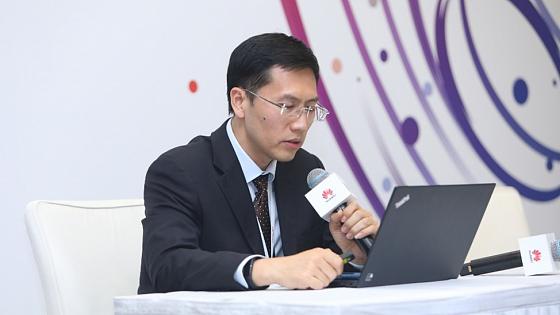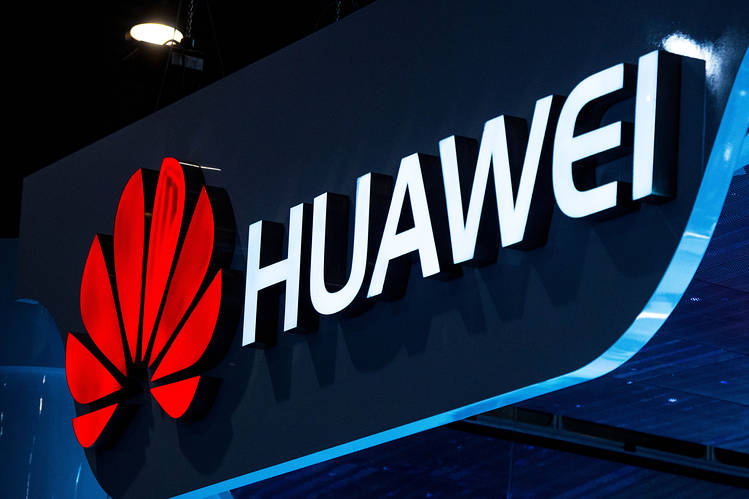At HUAWEI CONNECT 2020, IDC and Huawei jointly released the white paper for the electric power industry — Building the Future-Ready Power Enterprise: Road to a Successful Digital Transformation.
In the white paper, IDC proposed a methodology for the transformation of electric power enterprises. This methodology supports and aligns with Huawei’s digital transformation methodology. IDC and Huawei follow a similar approach with frameworks and blueprints to help organizations design their digital transformation priorities and set their agenda, which in turn enables power enterprises to deliver business value of scale.
Electric Power Enterprises Urgently Need New Operating Structures and Business Models
The power industry has long faced disruption. Power enterprises are now facing multiple changes. Management will need new operating structures and business models if power enterprises are to remain key players in the energy ecosystem. As 2020 progresses, COVID-19 has introduced another dimension of change and disruption that business leaders in the power industry must tackle.
Hou Jinming, Deputy Director of the Technology Department of the Global Energy Interconnection Development and Cooperation Organization (GEIDCO) said that, “As the advance of global energy reform and energy Internet development, the power sector will take an entirely different shape. It will be decarbonized, digitized, and intelligent.” The implications of the change will impact the management, operations, services, and transaction modes of the electric power industry. Power enterprises must reconsider who the customer is and who the competitor is, a new breed of stakeholders and participants, and how the energy ecosystem works. This will mean new customer engagements, new business models, new competitors, more stakeholders and increased risks.
Increasing renewables, emerging power consumption devices, multiplying power grid connections, and the integration of energy, information, and transportation networks require power enterprises to systematically improve their response capabilities and the intelligence of their management systems and business processes. This will allow power enterprises to better adapt to complex environments, and enable power systems to operate more securely, adaptively, flexibly, and efficiently. Therefore, high operation data analysis efficiency, rapid and efficient artificial intelligence (AI) decision-making capability, and full-process automation will be crucial to the survival of power enterprises.
Methodology: Five Stages of Digital Transformation of Electric Power Enterprises
To build the future power enterprise, IDC proposes the digital transformation methodology for the electric power industry.
IDC’s maturity model is part of its digital transformation methodology that seeks to provide a framework for companies to build their roadmaps. According to the maturity model, the digital transformation of electric power enterprises is divided into five phases: adhoc, opportunistic, repeatable, managed, and optimized.
The factors most critical to the success of power industry digital transformations are as followed: 1. A single enterprise digital strategy; 2. Resolution to make the required organizational and cultural changes; 3. A long-term investment commitment to digital transformation; 4. A platform-based strategy; 5. An enterprise-wide data governance model.
Emilie Ditton, AVP of the Energy and Manufacturing Insights Group, IDC Asia Pacific, believes that modernization, digitalization, and transformation of the grid are an immediate requirement. The transformed digital grid will combine traditional centralized generation, large-scale distributed generation, and renewables as well as enabling visualized management and control of the complex power grid environment. Grid operations will transform from digital grid operations to smart grid operations. New business models will be established, and the power service mode and power grid management mode will be changed.
Huawei: Reliable Partner for Digital Transformation
Collaborating with its enterprise partners, Huawei implements comprehensive awareness, interconnection, and intelligence of various power terminals by integrating 5G, IoT, optical, IP, cloud, big data, and AI technologies into the power system. Through digital transformation, Huawei is committed to assisting customers develop coping strategies in dealing with industry challenges and seizing future opportunities.
Lu Yongping, Vice President of the Global Energy Business Dept of Huawei Enterprise Business Group, stated that Huawei is a reliable partner for digital transformation. Huawei will facilitate digital transformation of electric power enterprises through a variety of methods, including assisting in the understanding of their own status quo, the market, and the entire industry ecosystem. Based on extensive digital transformation practices in the energy industry, Huawei has developed an energy ring — ‘1-2-3-2-1’ — a digital transformation framework applicable to the energy industry, in aiding electric power enterprises realize the vision of their digital transformation goals.
Adhere to one transformation vision: Electric power enterprises should interpret ‘digital transformation’ as a corporate-level transformation strategy and an indispensable element of their overall strategy.
Create two assurance conditions: Develop data literacy levels of enterprises and employees, progress the cultivation of a digital and transformation culture, and build a talent team for digital transformation, supporting enterprises’ digital transformation objectives.
Implement three key processes: Implement integrated management of planning, construction, and operations and ensure that digital transformation is progressing as outlined, so that an organization’s transformation vision can be converted into enterprise value.
Build two core driving forces: Follow service and technology trends and seize opportunities in the future.
Build one basic platform: Build a fully connected digital platform to provide solid foundations for the digital transformation of businesses.
Huawei’s digital transformation methodology is similar to that of IDC, and they complement each other. Both parties believe that digital transformation steps and frameworks need to be planned and established to help electric power enterprises design their digital transformation priorities and set their agenda, which will enable power enterprises to deliver business value of scale.
Hu Hao, Chief Digital Transformation Officer of the Global Electric Power Industry of Huawei Enterprise BG, pointed out that the global energy industry is facing transformation. The traditional energy consumption structure centered on primary energy is gradually transforming to a new structure centered on secondary energy such as PV and wind power. This will drive the industry evolving towards decarbonized, clean, electrified, and distributed. During the transformation, Huawei will help power enterprises optimize management processes, reduce production costs, improve operation security, and innovate business models. It will also help enterprise customers accelerate digital transformation to achieve the goal of building an intelligent energy system that features multi-energy synergy, ubiquitous connectivity, and intelligent interaction.
For more information, please visit: https://bit.ly/3dH7ZgK.









